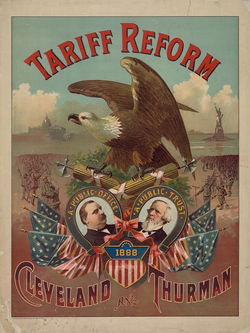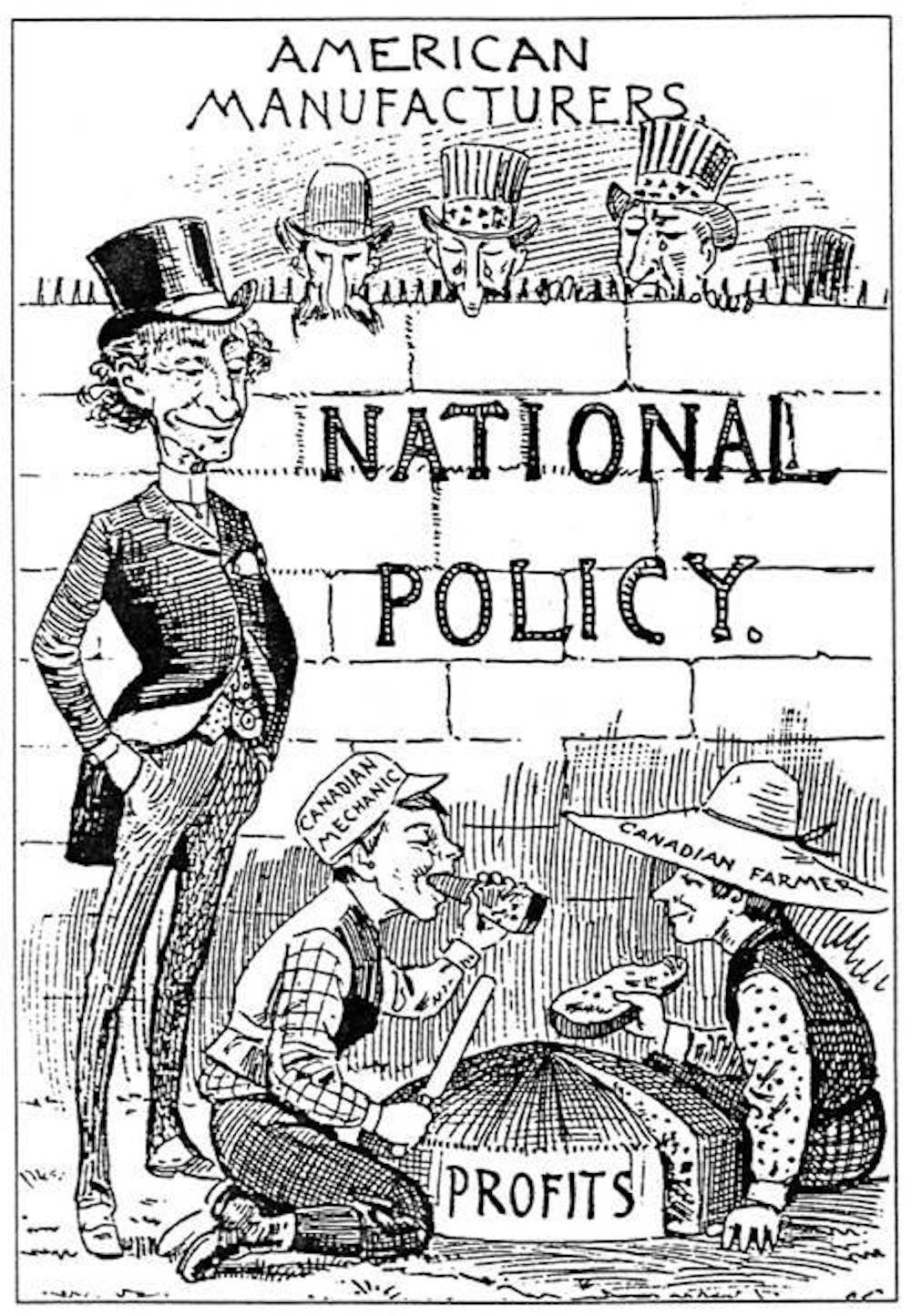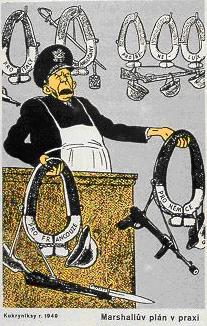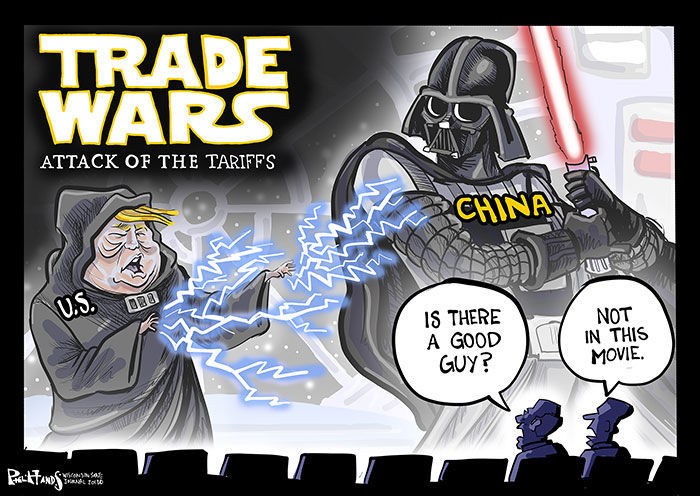(I will
explain the title later)
This is kind
of a political manifesto that I have been drafting up.
And did
those feet in ancient time
Walk upon England's mountains green:
And was the holy Lamb of God,
On England's pleasant pastures seen!And did the
Countenance Divine,
Shine forth upon our clouded hills?
And was Jerusalem builded here,
Among these dark Satanic Mills?Bring me my
Bow of burning gold:
Bring me my arrows of desire:
Bring me my Spear: O clouds unfold!
Bring me my Chariot of fire!I will not
cease from Mental Fight,
Nor shall my sword sleep in my hand:
Till we have built Jerusalem,
In Englands green & pleasant Land.
William Blake 1804
It might
seem odd that I am sharing this Poem, but I think it's relevant to British
national identity today. Just think about its meaning and compare it to British
and English nationalistic feeling today. Then we can see how to use this to create
a better society within Britain and promote and internationalist alternative to
the status quo.
The 2016
EU referendum was the catalyst for this to expose the underlining tensions within
the United Kingdom that were building up for decades. If one thing is certain
from this is that most people in this country wanted to change politics. People
saw this referendum as their own chance to do so. Only an ignorant individual
would think we voted leave because either the British public was stupid or
racist. Neither is true Eurosceptism while it was entrenched by media stories
came from outright frustration and the general direction of society for
decades. This was further amplified by the 2008 economic crisis and 2015
election. Where the main 3 politicians were almost identical in terms of policy
that they offered, even worse all attended Eton at around the same time. People
had enough. Above this UKIP's outright victory in the 2014 European Elections
should have sufficed as a warning sign. Of course, this was never the case for
our arrogant Westminster political class.
The Brexit process itself was a complete mess. Nobody knew what was the "will of the
people really"? We could only guess and speculate, I suspect though the
answer probably lies in the Northern Heartlands of the Labour Party. After the
referendum, I'll paraphrase Nigel Farage's point in the aftermath after the
referendum "I think the leave campaign won because of the Labour
Heartlands that have been abandoned by Labour." I always lived in these
communities, I spent all my life living in a region in South Yorkshire known as
the Dearne Valley that includes parts of Rotherham, Doncaster and Barnsley.
It’s a valley named after the river Dearne that is full of small towns and
villages that were associated with the heavy industry or coal mining. Even
today people still feel that we were worse off due to the de-industrialisation
process over the last 40 years. Here we have some of the poorest parts of the
country, the average wage in the area is approximately £18,000 a year the
national average is approximately £28,000. In towns such as Rotherham 1/5 of
people are unemployed. In Doncaster, the average wage has decreased in the last
10 years. People felt hard done by and left behind.
To know what
is key to what is going on we need to understand the failures of the mainstream
political parties. The Liberal Democrats are perceived as a party that propped
up the Conservatives that only has the interests of the wealthy Southern Middle
Classes. The Conservatives are still deeply hated due to Margret Thatcher. Post
Blair people begin to feel a general disconnect with the Labour Party, people
seem like no different as the Conservatives, a London centric party that is no
longer is interested in the local area. This sentiment reached its peak in the
2015 general election, Corbyn managed to regain some support amongst
traditional Labour supporters who either abstained (turnout is low in the
Labour Heartlands) or switched to other parties, mainly UKIP. UKIP successfully
marketed itself as this party that was taking on the corrupt establishment,
which now includes the Labour Party from the viewpoint of many people in its
heartlands. For the same reason, Eurosceptism also became more popular.
Many Britons
saw the European Union as a distant overseas organisation that they had no say
in. One of my Dad's friends told me, "If we can't even influence our
councillors to do what we want, how do we influence our MEP's? It does not make
sense they don't listen to us." Not only this, people felt that they did
not have a say in various international treaties such as Lisbon as Maastricht
that changed the British Constitution. People were concerned about Immigration,
of course, the immigrants are taking all the jobs narratives was fuelled by the
frustration brought about by the high unemployment and low wages locally.
Though I must admit this was vastly overhyped. The point is people’s anger was
built up by clear and obvious concerns, Brexit was a cry for help to the
British ruling class.
It does put
me in some despair when many individuals, who do particularly come from more
privileged backgrounds than myself address these issues with absolute
ignorance. Though it is understandable, Britain has always been good a segregating
people from different social backgrounds. I sincerely hope that people would
begin to address these concerns today. People are moulded by their environment.
The question
we should all be asking what is the direction forward? It’s been almost 3 years
since the EU referendum and nobody knows what is going to happen. Now we are in
a situation where article 50 can or will be extended indefinitely. Some say we
should revoke article 50, drastic action by will prove to further disillusion
the disillusioned. We could go for No Deal, but this will prove to be immensely
chaotic, we are breaking 40 years of ties in an instant. Either is unsavoury
currently. It is solution simple what we need to do, and the answer lies in our
domestic agenda. We need to empower those who feel most hard done by our
society, people who are the poorest in our society. An enormous effort needs to
be done in healing these communities that have been hard for decades.
Politicians need to listen and act. People need to be given a voice in
politics, this means further devolution and constitutional reform in the United
Kingdom. "The answer to a lack of democracy is more democracy"- Tony
Benn. I can't help but think that we need to move away what we consider free
market capitalism and Neo-Liberal economics. A Neo Keynesian economic strategy
might be needed.
Here are
some ways on how we should go forward:
1) Build a new constitution that enriches
democracy that protects human rights and civil liberties.
2) Decentralise power within the United
Kingdom.
3) Break up and limit the power of big
multinational companies in favour of community business and cooperatives.
4) Dismantle the City of London.
5) Bring the Bank of England under
Government control.
6) Leave the European Union, to seek the
establishment of a Commonwealth of Europe based on popular will and sovereignty.
This could be done through a reformed EFTA.
7) Introduce Universal Basic Income for
anyone over the age of 16.
8) Leave the IMF and the World Bank if
the Political faction of the insinuations cannot be ousted.
9) Decriminalise the use of all drugs and legalise
Cannabis, drug addiction must be treated as an illness.
10) Reform
British international aid spending, Governments should be banned from directly
giving aid to national Governments or NGO’s.
We should maintain the UN’s recommended 0.7% of GDP.
11)
Support
reforms to the United Nations, Britain should support reforms on the Environment
encouraging action on climate change and supporting an International Space Programme.
12)
Ban
Faith Schools and Private Tuition schools and dismantle the Academy system.
13)
The
abolition of anti-Trade Union legalisation
The average citizen of the United Kingdom should have additional should
have the right to influence what goes on in their lives, from controlling what happens
in the workplace to the local Government. People must feel like that are being listened
and they are a part of the system. The establishment of community businesses
are important too, businesses that both hire people locally and have a large
stake in a local community should be able to be held to account by the local
community. Local bus services could be easily turned into community businesses
for instance. Cooperatives should be created from larger business in sectors such
as Manufacturing. The idea of a democratic economy is vital to create a fairer
society.
The idea of a Democratic economy should go alongside a reformed Constitution.
A new Constitution is vital for Britain
outside the European Union, especially when we don’t have the EU treaties and possibly
the European Convention on Human Rights to fall back on. This should be a modernised
version of the 1991 Commonwealth of Britain bill proposed by Tony Benn.
Including the Abolition of the Monarchy, voting reform. The democratisation of
the house of lords and regional devolution. This should be supported by a new
bill of human rights.
14)
The constitutional status of the Crown should be abolished. Oaths to the crown
should be replaced with an oath to your constituency. The head of state will be
known as The Sovereign of Parliament and will also act as the speaker.
15)
The
Sovereign of Parliament elected by a joint sitting of both houses of the Parliament
and would have powers like the German head of state. He/she would have a
diplomatic role like the current Monarch.
16)
This the vote will require approval from both houses or the vote will go to the British
public through a referendum. The term of The Sovereign of Parliament will be 5
years unless he/she is impeached by Parliament, then a national referendum will
be called on the status of The Sovereign of Parliament.
17)
In
the modern day it is empirical that we have a secular state. We need to abolish
the Church of England as the established Church of England and the crown
dependencies.
18)
The
House of Lords to be replaced by an elected House of the Commonwealth with
equal representation of men and women. This will be elected with a raw PR system;
the House of Commons will be elected a single transferable vote system.
19)
The
50% of the House of the Commonwealth will be elected every 5 years. Anyone aged
16+ who is either a citizen or is a resident of the United Kingdom that pays
taxes will be entitled to vote.
20)
The
functions of the Royal Prerogative should be transferred to Parliament,
reformed houses of Parliament will both vote on the use of the Royal
Prerogative.
21)
The
Privy Council should be abolished and replaced by a Council of State, and its
members are held to account to Parliament and can be suspended for
Parliamentary misconduct
22)
Empower
the decentralised legislatures in Wales, Scotland and Northern Ireland, England
should a federal system like Germany. To boundaries along the lines as shown on
the map below.
23)
We
should create a reformed bill of human rights should be created. This will
protect, freedom of religion, freedom of speech (except for hate speech),
freedom of assembly and association, freedom of information (except military
secrets), right to privacy. Freedom from surveillance (unless suspect
of a crime or terrorist activities). Boldly freedom, the freedom to do what you
want to your body unless it affects other citizens in a negative manner, (e.g.
consume drugs) within reason. All Governments no matter the ideology must
respect a code of human rights as defined by organisations such as the UN. This
should an improved version of the European Convention of Human Rights.
The most important question of the day is with our relationship with the
European Union. Britain needs to leave the European Union to respect the view of
the majority of those that voted in the 2016 referendum and to reduce the influence
of the “Neo-Liberal global order” on Britain. The latter is a much more
difficult task and it's not attached to the European Union. Power needs to be in Britain and those with
power needs to be accountable to those in Britain, we should not centralise
power to overseas organisations that the average citizen does not have influence
over. One Brexiter in Rotherham once told me “The politicians say Europe benefits
us, but I don’t feel better off after 40 years and they all ignore us”.” A
powerful point that many Leave voters had. The basis for our future
relationship with Europe should be based on the idea of a Commonwealth of
Europe that was based on popular sovereignty and corporation. Perhaps a hybrid
between the African Union and the European Free Trade Organisation. Therefore,
I have concluded that Britain should be a permanent member of the European Free
Trade Organisation.
My proposal is for the United Kingdom to join the European Free
Trade Association. This would honour the referendum and give us a reasonable
trade deal for this to work with. Joining the EFTA requires approval from the
EFTA countries, Norway, Switzerland, Iceland and Lichtenstein. This could
indeed be problematic as Norway will be reluctant to allow the United Kingdom
to join the organisation. We should not remain, members of the EEA, this would
be a similar arrangement to Switzerland the major difference between us and
Switzerland is that we would not be in the Schengen zone.
EFTA will keep us in the single market, and I accept this will mean the
four freedoms would continue. This will prevent a hard border in Northern
Ireland, this is vital to prevent the rise of sectarian tensions in Northern
Ireland. Though with customs an Irish Sea customs border might be inevitable,
depending on the circumstances. It's preferable to have one single deal for The United Kingdom, and the EFTA will guarantee free movement of people between the
Republic and Northern Ireland. The key part of EFTA is that we will be outside
of a Customs Union. This will enable us to negotiate trade deals with other
countries if we stick to the EFTA Constitution. Following the United Kingdom
joining EFTA we should aim to create CANUK, a trade deal between Canada,
Australia and New Zealand and the United Kingdom. All the following nations
have expressed their interest for a free trade deal with the United
Kingdom after we exit from the European Union.
MP's will have a significant amount of influence over EFTA if we became a
member of the organisation. This can be done through the EFTA advisory body
known as the Parliamentary committee. This is a forum where MP's discuss
policy. These meetings are often attended by officials from the EU and other
countries. We have a veto on new EU rules that effect EFTA and we can
influence further rules on the EFTA council. The EFTA council is governing the
body of EFTA and it meets eight times a year at an ambassadorial level and
twice at a ministerial level. The council manages trade deals and the rules of
the organisation. EFTA also has trade deals with 24 trade deals across the
world to do deals with this includes Mexico and South Africa. EFTA has ongoing
negotiations with Indonesia. As members of EFTA, we can have a
significant influence on these trade deals.
EFTA was set up in 1960 with seven-member states, this included The United Kingdom as a founding state. EFTA unlike the EEC at the time was
intended to be a trade block. We were previously members of EFTA before we
joined the EEC in 1973. During this period when we were members of EFTA we
managed to maintain our trade relations with the British Commonwealth while we
transition our trade policy away from the Commonwealth nations to the EEC
members.
After examining the current composition of Parliament, well thought out
soft Brexit compromise may pass through Parliament in this current
deadlock. EFTA is an opportunity to have more control over our density in
Westminster while maintaining some of the benefits we currently enjoy under EU
membership. Our membership of EFTA will allow us to use temporary breaks of
Immigration when necessary. Understand Freedom of Movement will not end as a
member of EFTA however, EFTA membership is currently the most reasonable
way to leave the European Union. I see this as a perfect alternative to Labours
current Brexit policy if we can't implement in Government or in Opposition.
Then I hope we can eventually have a general election and elect a Socialist Government
that can deliver a society for the many and not the few.
We need a National and local investment scheme, this is to replicate EU
investment in the United Kingdom and to better the current investment. I think
this could be done with Labours national and regional investment banks. With is
we should create a British state aid board formed by leading businesses.
Create Canzuk a trade deal between Canada, Australia and New Zealand,
with an immigration deal. Propose an alternative institution to the European
Union, based on a trade deal with promoting national sovereignty, based on
similar terms to Canzuk, Tony Benn’s proposal of a European
Commonwealth. Even though I support our membership of EFTA I see this as a
long-term goal for the left in Europe. Guarantee all EU citizens
residency rights and offer them, full British citizens.
We should also, set up a financial transactions tax, the revenues of this
tax will be used to set up the regional economic regeneration committee that
will aim to invest money in the most deprived areas of the country such as the
West Country and South Yorkshire. Replace the Common Agricultural Policy with a
new British agricultural policy that will allow British citizens to receive
affordable food and the continuation of agricultural subsidies.
Make it a legal requirement for British mobile operators to offer zero
tariffs for British citizens to use mobile phones in Europe on the threat of
fines. Close British tax havens in the city of London and the overseas
territories. Reform the Pound Sterling, this is a long-term plan over decades
to readjust the value of the pound compared to the Yuan and the Dollar to make
British exports for viable in the long-term future. Abolish flat rate indirect
taxation such as VAT (for the exception of junk food and Tobacco products),
these taxes harm consumer spending and impact the poorest people the most. We
should also aim to unilaterally lower tariffs on certain essential imports such
as food and sanitary products.
We should aim to phase out our overreliance in financial services. The
fastest growing industries will be in robotics, biotechnology, green energy
etc. We should aim to invest in these new high-tech industries and use them to
reindustrialise the North of England. Many regions in the United Kingdom such
as in South Yorkshire don't benefit from our service dominated economy as much
as cities such as London. We need new industries to thrive as globalisation
continues, many former Industrial towns and cities such as Doncaster are too
reliant on the "Gig economy". We need a new economic vision for these
parts of the country. The 2017 Manifesto from the Labour Party for The Many and
Not the Few is a great start.
We should have an additional day of the year to celebrate Britishness and
British identity, it should be on 1 May to celebrate the 1707 act of Union
between England and Scotland as opposed to the anniversary to us leaving the
European Union. Education reform is vital for the future of the country.
We poorly educate our children to give them adequate knowledge of the
world. We also fail to give children the skills for employment. A skilled
population is vital if we are to build long term sustainable industries. There
needs to be more of a wide range of vocational subjects available. I also think
we should teach philosophy to children at a young age to encourage critical
thinking and to allow future generations to question the current society we can
live in who can provide more ideas on how to transform society for the better.
Give the current I recently re-examined Plato's argument for a state to
be ruled by a special elite of Philosophers who could escape the world of sense
experience and rise to the contemplation of new ideas. In Politics currently,
we suffer from too much short-termism we need to think about the future in the
long term in how we model the society for the better. I reject the notion
of a "special elite of philosophers", philosophy is the key to
understanding the nature of our society and should be accessible for everyone.
I believe one of the reasons Brexit occurred is because of economic
deprivation, the lack of new radical ideas, and Politicians failing to listen
to their constituents. We need to young people the come up with new ideas and
challenge the ideas of the past, as a society I feel we have been too stagnant.
As Tony Benn once argued, "every generation is forced to fight the same
rights all over again and again". The key to transforming society for the
better can be summed up in two words community and education. We should give
every child an equal and an amazing opportunity we must promote social mobility
and tackle elitism, and therefore we must ban Private education.
The most difficult task for any progressive is to take on the global system of capital. The origin of many ills felt by workers across the globe is the effects of the Washington consensus. Once we have tackled the problems we face at home we must promote progressive change for every nation on Earth. We are one Human race on the planet at the end of the day, we will be all be affected by the Environmental destruction brought about by the actions of Multinational Corporations.




